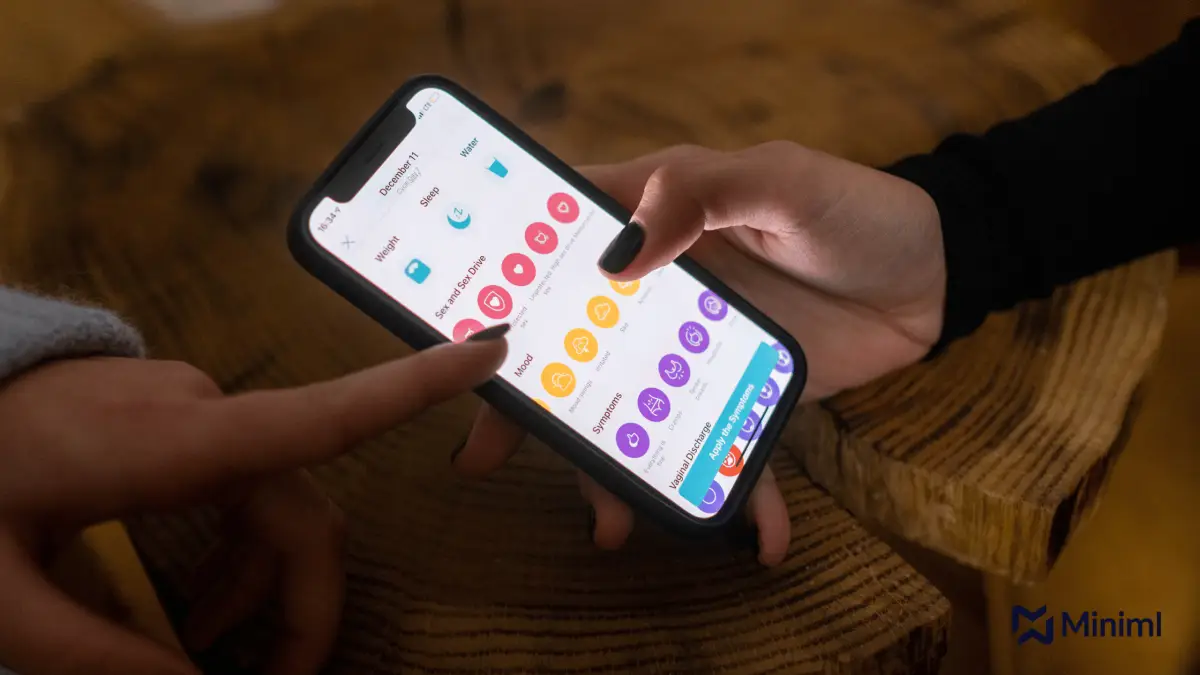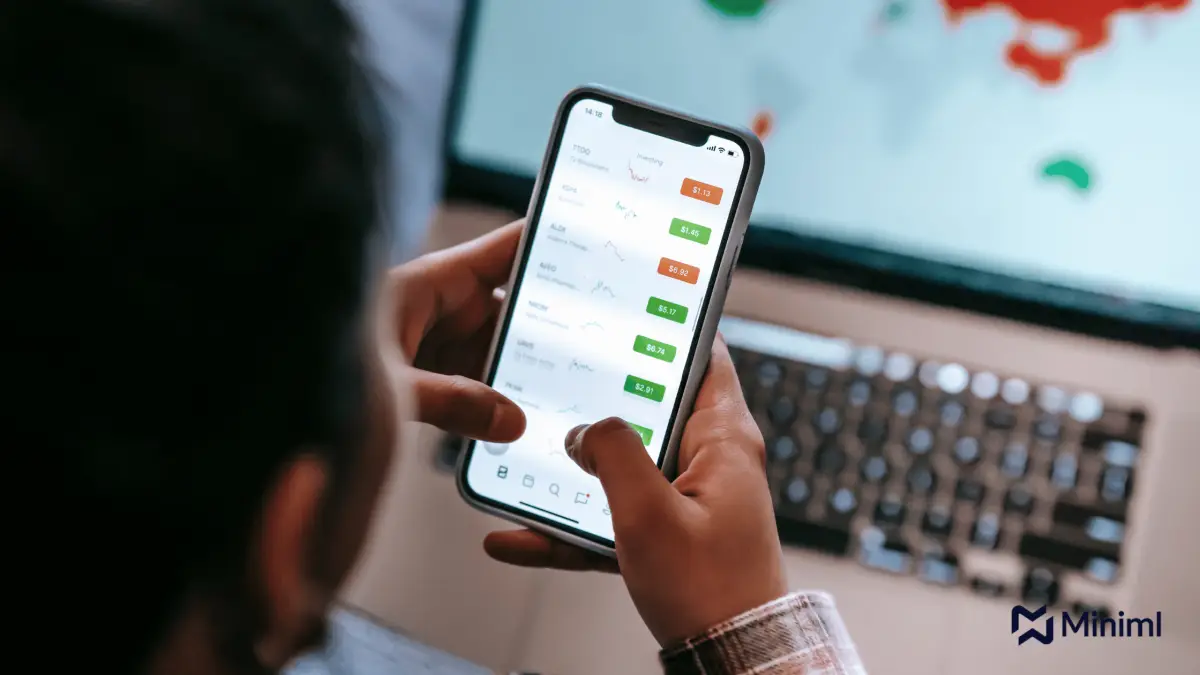AI App: Artificial intelligence has moved from tech conference buzzwords into everyday business reality. From predictive healthcare tools to smart financial analysis systems, AI-powered applications are being adopted across industries to solve real problems.
For many companies, the idea of creating their own AI-driven app feels exciting but also daunting. There’s a lot to think about: what problem should it solve, how will the data be managed, which technology stack to choose, and how to make sure it’s secure and scalable.
At Miniml, an Edinburgh-based AI consultancy, we’ve helped businesses in healthcare, finance, retail, and education move from a concept on paper to fully functioning, production-ready AI applications. This guide walks you through the process in a clear, practical way without the jargon overload.
What an AI App Is
An AI app is any application that uses machine learning, natural language processing, or other artificial intelligence techniques to perform tasks that would normally require human intelligence.
Unlike traditional apps that follow strict, pre-programmed rules, AI apps learn from data and improve over time. Examples include:
- A customer service chatbot that can understand and respond in natural language.
- Retail apps recommending products based on past purchases.
- Predictive tools for healthcare diagnosis.
- Fraud detection systems in banking.
At their core, these applications combine data, algorithms, and user interfaces to provide intelligent, adaptable solutions.
Step-by-Step Process to Build an AI App
1. Define the Problem and Goals
Every successful AI project starts with a clear understanding of the business challenge. Without this, you risk building something impressive that doesn’t actually meet your needs.
- Identify pain points where automation or prediction could add value.
- Speak to different teams to understand their challenges.
- Set measurable goals such as reducing processing time, improving accuracy, or increasing engagement.
2. Choose the Right AI Model and Approach
AI isn’t a one-size-fits-all technology. The model you choose will depend on your goal.
- Pre-trained models: Useful when you want a quick start with general capabilities (e.g., image recognition, language understanding).
- Custom-trained models: Best for industry-specific challenges where data and terminology are unique.
- Learning methods:
- Supervised learning: Learns from labeled examples.
- Unsupervised learning: Finds patterns in unlabeled data.
- Reinforcement learning: Improves performance based on trial and error.
- Supervised learning: Learns from labeled examples.

3. Gather and Prepare Quality Data
Data is the fuel of any AI app. Poor data leads to poor results.
- Collect relevant, high-quality datasets.
- Clean and format data to remove errors, duplicates, and inconsistencies.
- Address bias to ensure fair and accurate results.
- Follow compliance requirements like GDPR for user privacy.
4. Select the Technology Stack
The tools you use will impact both development speed and app performance.
- Frameworks: TensorFlow, PyTorch, or Hugging Face for model development.
- Cloud platforms: AWS, Azure, or Google Cloud for scalability and integration.
- Languages: Python is the most popular for AI development, but JavaScript, Java, and R have their uses.
5. Develop, Test, and Iterate
Building an AI app is rarely a straight line from start to finish.
- Start with a prototype to validate your approach.
- Involve both technical experts and business stakeholders during development.
- Test accuracy, speed, and usability with real-world scenarios.
- Refine the model based on feedback and results.
6. Deploy and Integrate
Once your app is ready, it’s time to make it available to users.
- Host on secure cloud infrastructure for easy scaling.
- Integrate with existing systems via APIs.
- Monitor performance and maintain regular updates to keep the model accurate and relevant.

Common Challenges in Building AI Apps (and How to Handle Them)
Even with a clear plan, you’ll face challenges along the way:
- Data quality issues: Use automated cleaning tools and expert review.
- Model bias: Include diverse datasets and conduct fairness checks.
- Compute costs: Use cloud-based, on-demand compute services.
- Regulatory compliance: Work with legal teams to ensure data privacy and security.
At Miniml, we approach these issues early in the project to prevent costly mistakes later.
Best Practices for Building Successful AI Apps
- Start with a focused use case before expanding features.
- Involve end users early to ensure the app meets their needs.
- Design for explainability users should understand why the app made a decision.
- Keep security and compliance at the forefront.
- Plan for continuous learning so the app stays accurate as new data comes in.
Real-World Use Cases
Some practical examples of AI apps across industries include:
- Healthcare: Predicting patient readmission risks to improve care plans.
- Finance: Real-time transaction monitoring to detect fraud.
- Retail: AI-based visual search so customers can find products from photos.
- Education: Intelligent tutoring systems that adapt to a student’s learning pace.
These use cases show how AI apps can solve industry-specific problems in measurable ways.
Why Partner with a Specialist Like Miniml
While it’s possible to attempt AI app development in-house, partnering with an experienced consultancy reduces the risks and accelerates delivery.
At Miniml, we:
- Build custom AI strategies aligned with your goals.
- Work across industries with proven solutions in healthcare, finance, retail, and education.
- Have expertise in Large Language Models, generative AI, and automation workflows.
- Ensure every solution is secure, scalable, and practical for real-world use.
If you have a vision for an AI-powered app, we can help turn it into a working product.

Conclusion
Building an AI app involves more than coding it’s about identifying the right problem, selecting the right technology, and ensuring the solution delivers long-term value.
By following a structured process, avoiding common pitfalls, and working with experienced partners, businesses can create applications that genuinely improve operations and decision-making.
If your business is ready to take the first step, contact Miniml today to discuss your project and start planning a tailored AI app that works for you.








